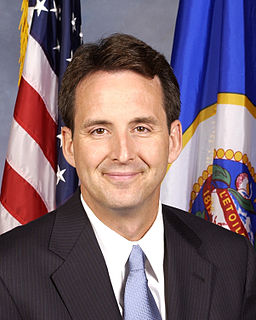A Quote by Stephen Harper
What we clearly need is experimentation with market reforms and private delivery options [in health care].
Related Quotes
In comparison to the U.S. health care system, the German system is clearly better, because the German health care system works for everyone who needs care, ... costs little money, and it's not a system about which you have to worry all the time. I think that for us the risk is that the private system undermines the solidarity principle. If that is fixed and we concentrate a little bit on better competition and more research, I think the German health care system is a nice third way between a for-profit system on the one hand and, let's say, a single-payer system on the other hand.
The truth is that the greatest innovations in health-care delivery haven't come from federally contrived oligopolies or enormous hospital chains. Novel concepts - whether practice-management companies, home health care or the first for-profit HMO - almost always have come from entrepreneurial firms, often backed by venture capital.
































